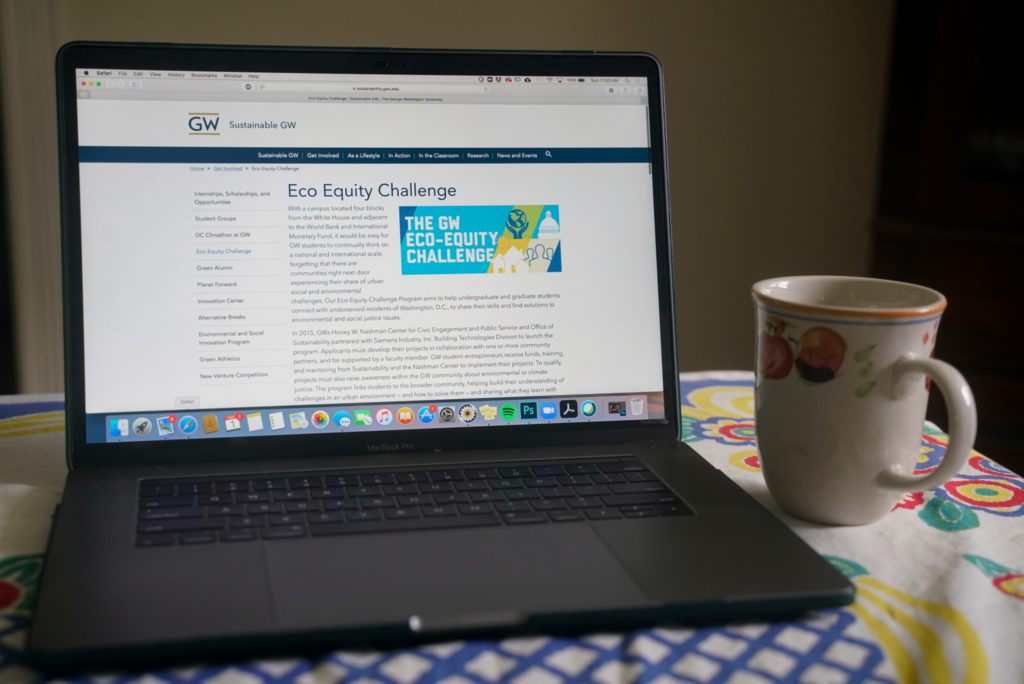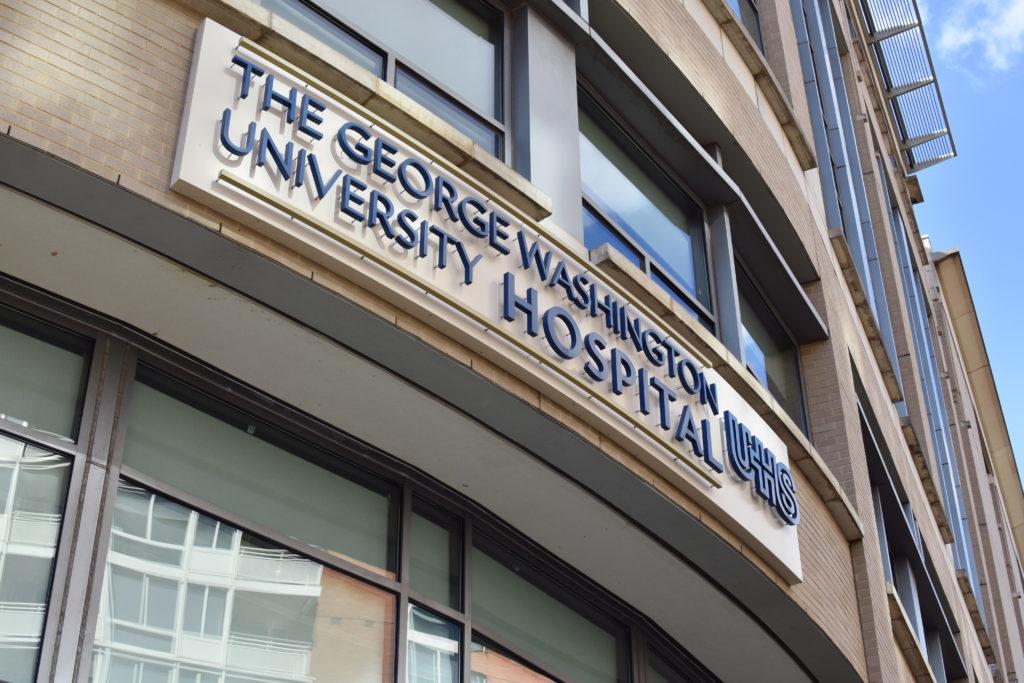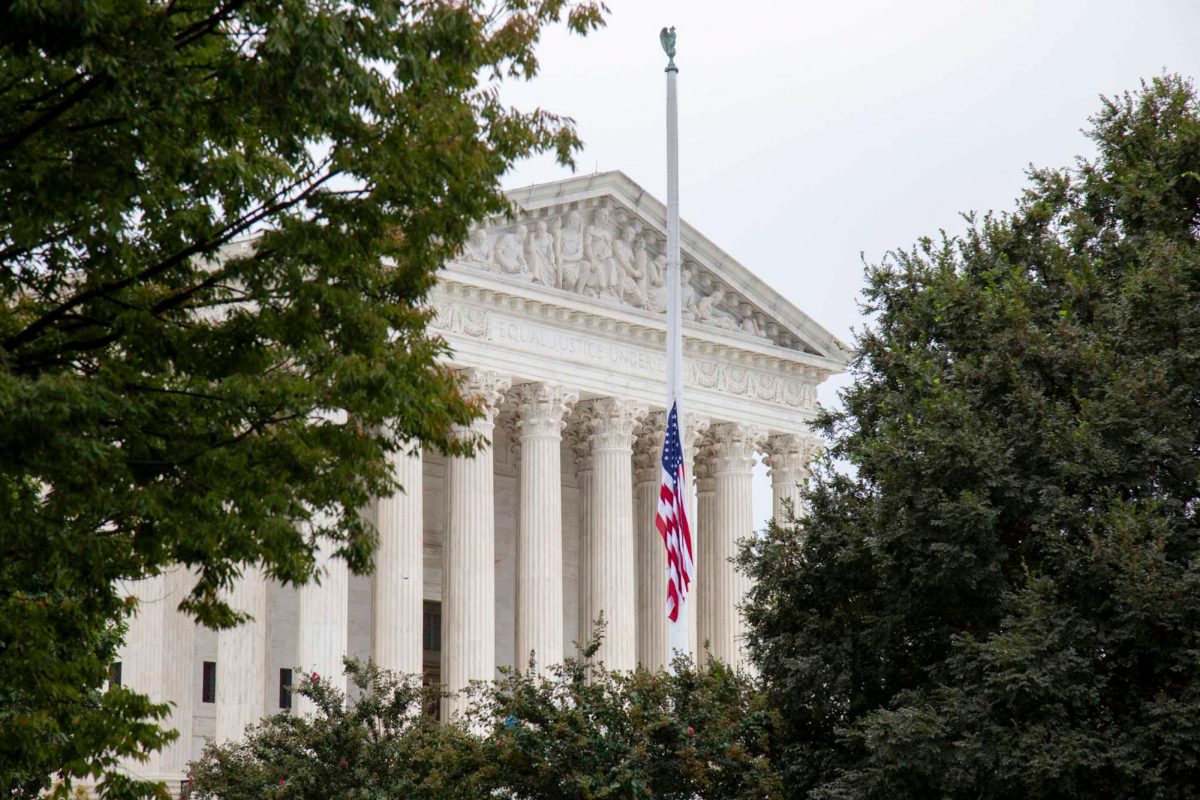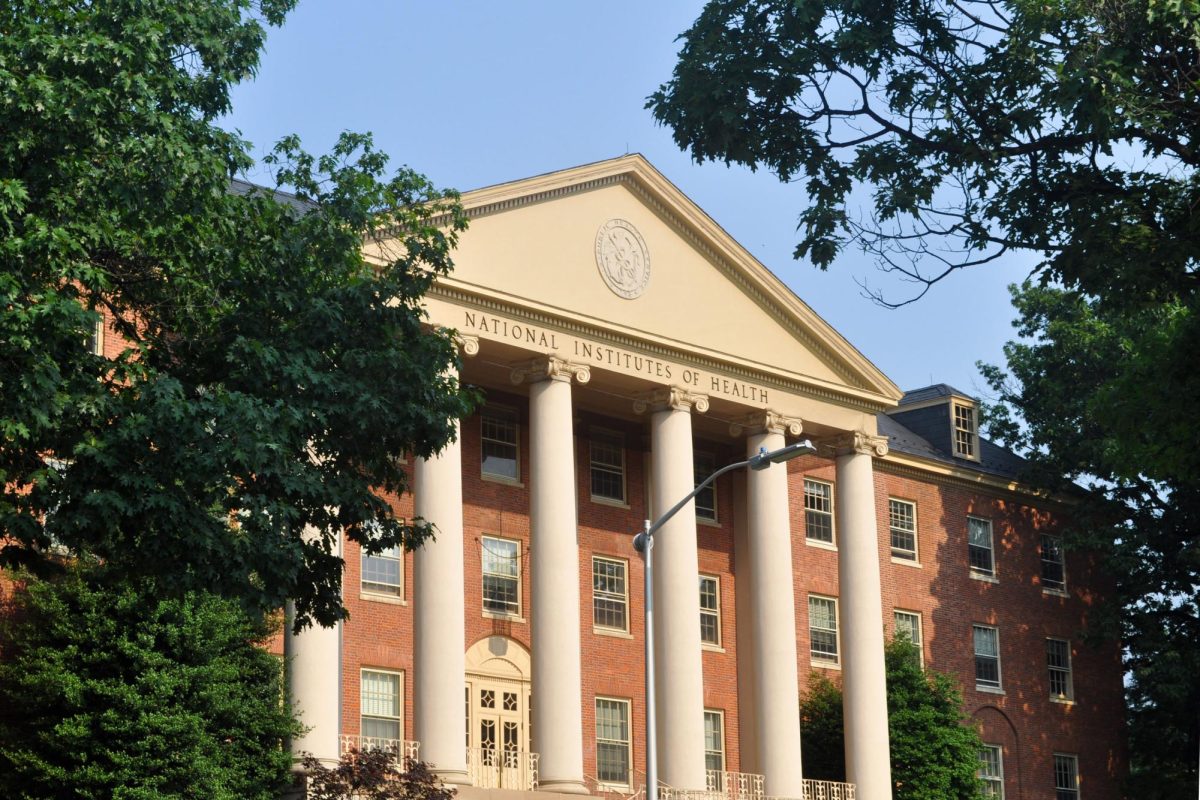Five years after officials launched the University’s sustainability competition, participants have helped bring awareness about climate change and environmental issues to underserved areas of the city.
The Eco-Equity Challenge, which debuted in 2015, gives students the opportunity to spearhead sustainability service projects to help underserved residents in D.C. by seeking solutions to environmental issues. Sustainability experts said programs like the Eco-Equity Challenge both boosts the University’s sustainability initiatives and improves the community outside campus.
Meghan Chapple, the director of the Office of Sustainability, said officials provide about $5,000 per project to students each year. She said a panel of staff from the sustainability office and the Nashman Center for Civic Engagement and Public Service reviews project proposals and determines which students to award financial support.
“The program links students to the broader community, helping build their understanding of challenges in an urban environment – and how to solve them – and sharing what they learn with others at the University,” Chapple said in an email.
Chapple said in the first year officials held the challenge, several participants worked alongside Higher Achievement, a nonprofit that works with middle schools in the D.C. area, to develop mapping and geography education for students in an underserved area of the D.C.
She said the number of students who participate each year varies, but officials typically award funding to one or two projects each year.
She said Logan Malik, a 2018 graduate who participated in the program as a student, focused his project on monitoring greenhouse gas emissions in underserved communities in D.C.
The website states other projects have included teaching local students how to use mapping technology to find green spaces around their neighborhoods.
“By engaging the students in the construction of the sensors and showing them a practical use of engineering, computer science and chemistry, Logan helped to bridge the gap between scientific research and local community members,” she said.
The Nashman Center partnered with the sustainability office and Siemens Industry Inc., a technology company, in 2015 to jointly start the challenge, according to the sustainability office’s website.
The students who are accepted to the program receive funds, training and mentoring from the Nashman Center to carry out their project, according to the website.
Malik said he completed and led a project that collected data on the amount of greenhouse emissions surrounding high schools in low-income regions of the District.
“Getting the opportunity to interact with students and talk about climate change and then bring this technology to places that were not having these conversations, that was really cool,” he said.
He said students who have an idea for the challenge first must find a faculty member to partner with them and discuss what goals are attainable and realistic. He said he enjoyed that the program allowed him to merge scientific research with community engagement.
Malik added that he developed a curriculum to teach high schoolers in low-income areas about climate change and its impact on communities similar to theirs. He said students could also learn how to use his carbon dioxide sensors that measure greenhouse gases and employ it in the classroom to learn about engineering and chemistry.
“I focused my project on low-income areas that were predominantly Black communities, and it was just an awesome experience,” Malik said. “The kids were so fun and really intrigued in what we had to offer, and we got a chance to do experiments with them, which was a lot of fun.”
Experts in sustainability said programs like the Eco-Equity Challenge encourage students to engage with their communities while bringing about awareness to environmental and climate justice issues.
Michael Kornitas, the director of sustainability and energy at Rutgers University, said the program helps foster sustainability practices among college students and within the local community outside the university.
“When a university is able to foster sustainable practices among its students, it not only enhances efforts at the university but teaches new skills to the students who in turn as they move on utilize these skills wherever they may go,” he said in an email.
Aurora Sharrard, the director of sustainability at University of Pittsburgh, said the Eco-Equity Challenge engages multiple aspects of sustainability, like equity and the economy, that are necessary to making progress in sustainability.
“As communities and institutions around the United States and world have looked inward in 2020, it’s been wonderful to see many governments, corporations, nonprofits and higher education entities embrace the full spectrum of sustainability,” Sharrard said in an email.








